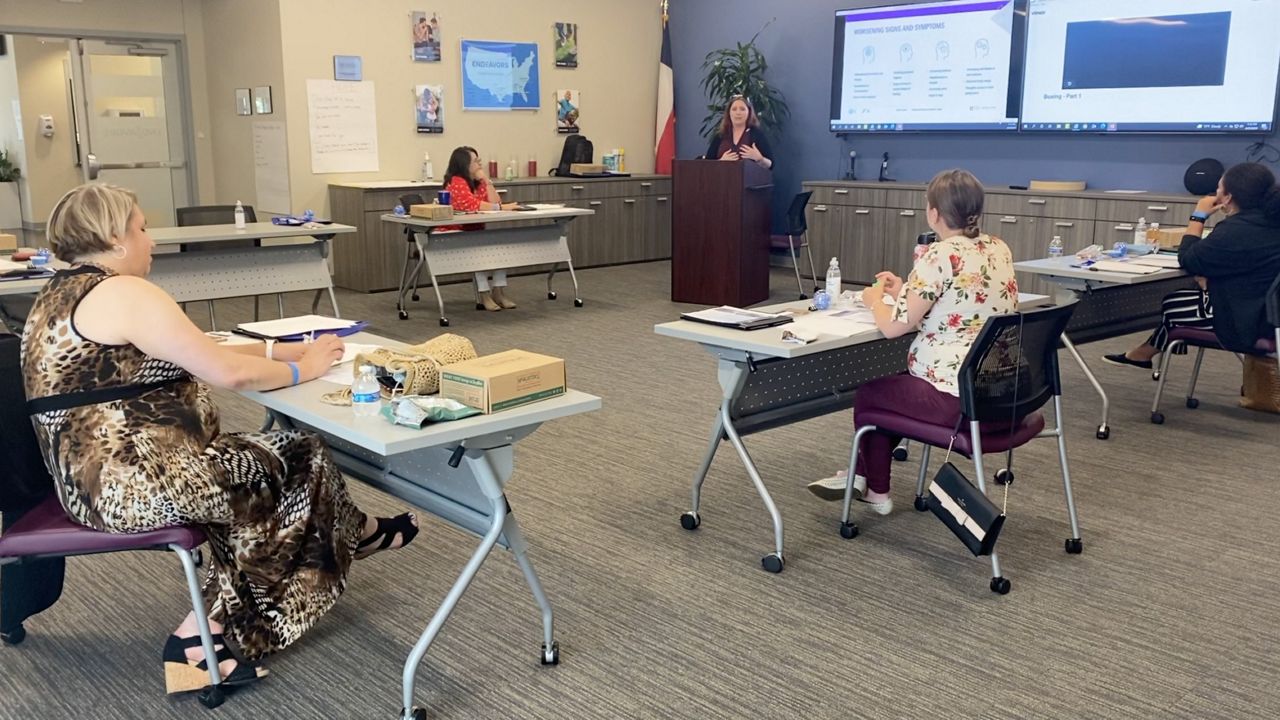LEXINGTON, Ky. — The Centers for Medicare and Medicaid Services (CMS) recently announced an award of $15 million to Medicaid agencies in 20 states, including Kentucky, for planning grants that will support expanding community-based mobile crisis intervention services for Medicaid recipients.
What You Need To Know
- Twenty states will receive $15 million
- Funding made possible through the American Rescue Plan
- Mobile crisis intervention units assess situations on-site
- Goal is to provide support, not send people to jail
Mobile crisis teams are comprised of qualified professionals trained to de-escalate and treat individuals in crisis and work to assess and stabilize individuals experiencing behavioral health emergencies in the least restrictive setting and divert individuals with mental illness from jail and emergency departments.
The funding is provided by the American Rescue Plan (ARP) and will help deliver these services 24-hours a day, helping individuals on Medicaid that experience a substance use-related or mental health crisis outside of a hospital or facility setting.
“These services will undoubtedly save lives, and may also help to reduce the reliance on law enforcement when people are experiencing a behavioral health crisis,” said Emily Beauregard, executive director of the nonprofit Kentucky Voices for Health. “In turn, this funding will then further help to prevent the unnecessary incarceration of people with mental illness or substance use disorders and provide them access to treatment and care.”
The funding helps integrate community-based mobile crisis intervention services into Medicaid programs, a component of establishing a sustainable and public health-focused crisis support network.
The funding will also allow states to develop, prepare for and implement qualifying community-based mobile crisis intervention services under the Medicaid program, assess current services, and strengthen capacity and information systems to ensure services can be accessed 24-hours a day.
“I think mental health is a hot topic right now and has always been an issue, but COVID has really brought it more to the forefront because everybody’s struggling with the anxiety of that or depression or the stressors that bring that on,” said Darcy Miller, regional director of emergency services at New Vista in Lexington, a mental health center serving a 17-county region in central Kentucky. “If you've already struggled with mental health issues, it's just going to make it that much more intense. We're able to spotlight behavioral health and substance use because we have the infrastructure, but the funding has taken a lot of hits over the years. With this kind of funding, we can support and build it up so we can provide a response that meets people in the community and where they live.”
Miller said mobile crisis units include at least one member of law enforcement, usually in plainclothes, and this funding could keep from putting police in a situation where they have to act as social workers.
“That’s not what their role is, but they're being asked to play that role,” she said. “If they have access to someone with behavioral health training, they can go out on the call together or they can call and consult with them — that's going to change the outcome for that person, whether it's jail or hospitalization, or things escalate, that can really help reduce those problematic issues.” Miller said members of the Lexington Police Department and other agencies in New Vista’s 17-county region have participated in crisis-intervention training to learn more about mental health, substance use, and intellectual and developmental disability issues.
Executive Director of Mental Health America Kentucky Marcie Timmerman said the funding is beneficial in many ways but will play a significant role in responding to mental health crises in the commonwealth’s rural areas and keep going to jail from being the typical solution.
“The farther away you are from services, the harder it is to find and hire qualified people,” she said. “With this funding, we should at the very least be able to provide a mental health assessment. It's not the same as calling 911. Mobile crisis units are there to assess, intervene and probably give resources to mental health issues and receive support instead of always being taken to jail or a hospital.”
Kentucky has 14 community mental health center regions. It will be announced soon where the funding will be allocated.



